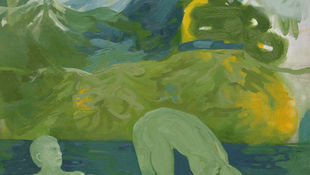
On Taste Perception
The term taste presents a fascinating ambiguity in philosophical discourse. On the one hand, it refers to a basic sensory faculty - the ability to perceive and differentiate flavours. On the other hand, particularly in eighteenth-century aesthetic theory, it signifies a more refined faculty: the ability to evaluate beauty, artistic merit, and other aesthetic values. This dual usage has sparked enduring debates on the nature of aesthetic experience and the standards by which it is judged. This article explores the latter meaning of taste, focusing on its role in aesthetic theory as articulated by David Hume and Immanuel Kant. These two thinkers developed influential accounts of taste that have shaped contemporary understandings of aesthetic evaluation, especially concerning the role of subjectivity, universality, and cultivation.

For Immanuel Kant, taste is not simply a passive sensory response but an active faculty of judgment. In his Critique of Judgment (1790), Kant defines taste as "the faculty of estimating an object or a mode of representation using a delight or displeasure apart from any interest." This definition underscores a key Kantian distinction: aesthetic judgments are disinterested. That is, they are not driven by desire or utility but by a particular kind of pleasure that arises from the harmonious interplay between the faculties of imagination and understanding. Aesthetic pleasure, in this view, is not rooted in the object’s utility or personal gratification. Instead, it reflects a subjective universality - a pleasure that, while felt individually, carries with it a claim to communal agreement. When we say something is beautiful, we are not merely expressing a personal preference; we are suggesting that others ought to agree, even if no explicit rule governs such agreement.
David Hume, writing several decades before Kant, approaches taste from an empiricist and more socially embedded perspective. In his essay "Of the Standard of Taste" (1757), Hume acknowledges the variability of aesthetic judgment while simultaneously striving to establish a normative framework for it. He famously writes: “A true judge in the finer arts... is endowed with delicate sentiment, improved by practice, perfected by comparison, and cleared of all prejudice.” For Hume, the refinement of taste involves both natural sensibility and acquired discernment. While individuals differ in their immediate reactions to works of art, those with cultivated sensibilities - developed through experience, education, and critical engagement - are more likely to arrive at reliable judgments. These individuals constitute a kind of aesthetic elite whose judgments can serve as benchmarks or standards for others. Unlike Kant, Hume does not insist on the disinterestedness of aesthetic judgment. However, he shares with Kant the idea that taste is not merely a subjective whim but a faculty subject to development and refinement.
Both Kant and Hume thus reject the idea that taste is purely innate. Instead, they view it as a faculty that requires cultivation. This process of development involves exposure to exemplary works, engagement with critical discourse, and the exercise of reflective judgment. Taste, in this sense, is a moral and intellectual achievement as much as it is an aesthetic one. Moreover, taste becomes a marker of social and cultural capital. The ability to discern beauty is not just a personal virtue but a socially significant attribute that signals education, refinement, and membership in a cultivated class. While this aspect of taste opens it to critiques of elitism and exclusion, it also highlights the importance of shared standards in public discourse about art and beauty.
The concept of taste, when viewed through the lens of eighteenth-century aesthetic theory, emerges as a complex and multifaceted faculty. It bridges the gap between subjective experience and universal judgment, between raw perception and cultivated evaluation. In the hands of thinkers like Hume and Kant, taste becomes a cornerstone of aesthetic philosophy - a means of negotiating the delicate balance between individual sensibility and communal standards of beauty. As such, the study of taste remains vital not only for understanding historical aesthetics but also for engaging with contemporary debates about art, culture, and value.





